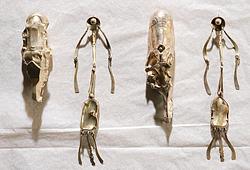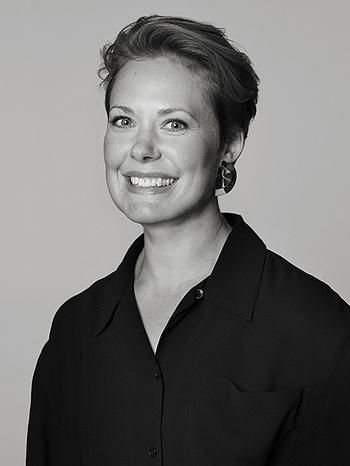Martin Schoeller
"Philip Seymour Hoffman, New York, 2003"
Signed Martin Schoeller and dated 2016, numbered 8/10, on the label verso. Archival pigment print mounted on aluminum and framed, image 49 x 40 cm. Including frame 60 x 50 cm.
Alkuperä - Provenienssi
Camera Work, Berlin.
Private Collection, Sweden.
Muut tiedot
"A photographic close-up is perhaps the purest form of portraiture, creating a confrontation between the viewer and the subject that daily interaction makes impossible, or at least impolite". Schoeller's work emphasizes this intense, intimate, and often challenging connection by scrutinizing subjects in their most vulnerable state, revealing details and expressions that are typically hidden from view.
Martin Schoeller (b. 1968, Munich) is one of the most renowned contemporary portrait photographers. After studying at the Lette-Verein in Berlin and in Hamburg, he moved to New York, where he assisted Annie Leibovitz for four years before beginning his independent practice in 1996. A regular contributor to major publications, Schoeller—like Richard Avedon before him—served as a contract photographer for The New Yorker.
His celebrated Close Up series, begun in 1998, has become one of the defining portrait projects of the past three decades. Featuring more than 200 leading figures from politics, art, culture, and sports, the series is distinguished by Schoeller’s rigorous consistency: identical lighting, framing, and lack of retouching for each sitter. “What you see is what you get,” he has said, underscoring his pursuit of a more truthful, if never entirely objective, form of portraiture. Exhibited worldwide, Close Up remains central to Schoeller’s practice.
In the 2024 documentary “We all bleed red”, Josephine Links accompanies Martin Schoeller on his personal photography projects, not only showing a world-renowned photographer at work, but also providing insights into diverse worlds that reveal the fractures in American society. In doing so, the film conveys the deeply humanistic insight that Martin Schoeller has sought to convey through his work for decades and which is expressed in the film through the words of a Native American: “We all bleed red.”
Philip Seymour Hoffman (1967–2014) was among the most accomplished and admired American actors of his generation. Known for his extraordinary range and commitment to character, Hoffman emerged in the 1990s with memorable roles in Boogie Nights (1997), Magnolia (1999), and The Talented Mr. Ripley (1999). His breakthrough as a leading man came with Capote (2005), for which he won the Academy Award for Best Actor. He went on to earn further Oscar nominations for his performances in Charlie Wilson’s War (2007), Doubt (2008), and Paul Thomas Anderson’s The Master (2012).
Hoffman was also an accomplished theater actor and director. He was a longtime member of New York’s Labyrinth Theater Company and received Tony Award nominations for True West (2000), Long Day’s Journey into Night (2003), and Death of a Salesman (2012). His career, cut short at just 46, left a legacy of rare depth and intensity across both film and theater.










































